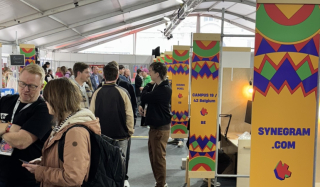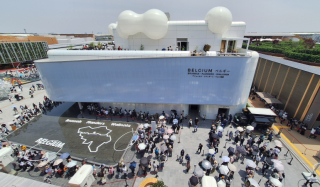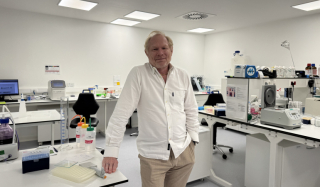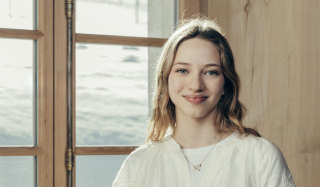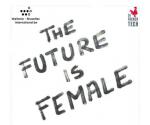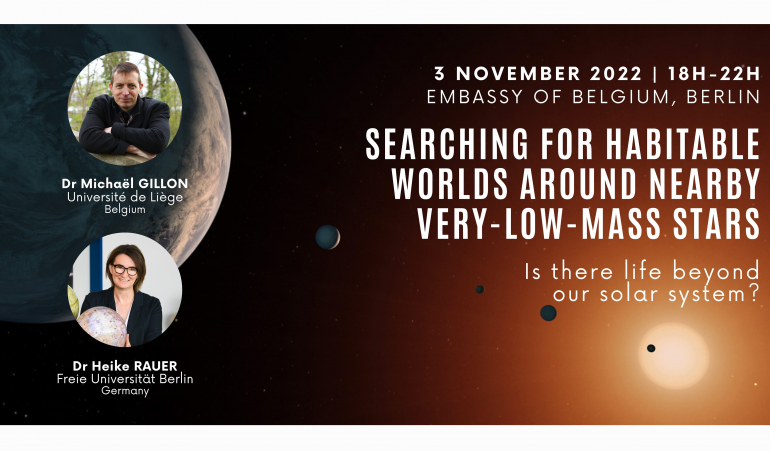
Professors Michaël Gillon and Heike Rauer will take us on a voyage of discovery into space on Thursday 3 November 2022, at a conference to be held at the Belgian Embassy in Berlin as part of Berlin Science Week.
This conference, organised by Wallonie-Bruxelles International in close collaboration with the Délégation Générale Wallonie-Bruxelles in Berlin, questions the discovery of planets with characteristics similar to those of our Earth that could harbour life forms. This conference is part of Wallonia-Brussels' programme for Berlin Science Week, an international scientific event in which world-renowned scientists are participating. And Wallonia-Brussels has some exceptional ones.
What is it about?
Since the end of the last century, thousands of planets have been detected orbiting stars other than the Sun. A few dozen of these exoplanets are said to be 'potentially habitable', i.e. they could be rocky worlds with oceans of water on their surface, like our Earth. Imagining complex life forms on some of these planets is just one step that science fiction has happily taken. But our imagination is about to be replaced by real scientific measurements, as we now have the instrumental means to probe the atmospheric compositions of some of these extrasolar worlds orbiting nearby very low-mass stars. So far, the best targets for such atmospheric studies are the seven Earth-sized planets discovered a few years ago around TRAPPIST-1, a tiny red dwarf star 40 light years away.
Michaël Gillon, the Belgian astrophysicist who led the discovery of this planetary system, will tell us all about it and explain how the study of exoplanets is bringing us closer and closer to an answer to the exciting question: Is there life elsewhere in the universe? He will be supported in his lecture by Dr. Heike Rauer (German Aerospace Center (DLR) / Head of the Institute for Planetary Research (Freie Universität Berlin).
Who are the speakers?
Michaël Gillon is an astrophysicist and FNRS Research director at the University of Liège, Belgium. His research focuses on the detection and study of exoplanets, with a particular emphasis on potentially habitable planets orbiting nearby low-mass stars. He is the initiator and principal investigator of the TRAPPIST and SPECULOOS exoplanet projects, and a member of several international exoplanet projects. His significant contribution to the study of exoplanets and the search for life elsewhere in the Universe has been recognised by several awards, such as the prestigious Balzan and Francqui prizes, and a nomination to Time magazine's list of the 100 most influential people in the world.
Heike Rauer graduated in physics from the University of Hanover in 1986. She received her PhD from the University of Göttingen in 1991 with a research paper on cometary plasma tails, which she wrote at the former Max Planck Institute for Aeronomy (now called the Max Planck Institute for Solar System Research) in Katlenburg-Lindau. As a recipient of a research grant from the European Space Agency (ESA), she worked at the Observatoire de Paris - Meudon from 1995 to 1997. During her subsequent period at DLR, Heike Rauer completed her post-doctoral fellowship (Habilitation) at the Technical University of Berlin in 2004, where she taught in the Department of Astronomy and Astrophysics as a professor of planetary physics. She joined the Department of Geosciences at Freie Universität Berlin on 1 November 2017, where she specialised in planetology.
Since 2013, Heike Rauer has been leading the instrument consortium of ESA's PLATO space telescope, which will study the Milky Way in search of planets, in particular Earth-like planets, from 2026. She is a member of the science team of the Next Generation Transit Survey (NGTS), a network of 12 automatically operating telescopes that search for exoplanets at the Paranal Observatory, part of the European Southern Observatory (ESO) in Chile. She was the German representative and co-investigator in the CNES and ESA CoRoT space telescope project from 2006 to 2014. She was also part of the team of the Rosetta Microwave Spectrometer MIRO which was used to identify cometary gases.
(Source: DLR press release of 1 November 2017)
The programme
-
18:00 - 18:30: Welcome
-
18:30 - 18:35: Opening speeches
Alexander Homann - Leiter der Vertretung Ostbelgiens, der Föderation Wallonie-Brüssel und der Wallonie in Berlin
Mathieu Quintyn, Wallonie-Bruxelles International - Science and Technology Advisor - Germany -
18:35 - 20:00 : Lectures (+ questions) "Is there life beyond our solar system?
Dr. Michaël Gillon - astrophysicist and FNRS research director at the University of Liège, Belgium
Dr. Heike Rauer - German Aerospace Center (DLR)/Director of the Institute for Planetary Research (Freie Universität Berlin) -
20:00 - 22:00 - Buffet "Goût Belge"
How to participate
-
Location: Embassy of Belgium - Jägerstraße 52-53, 10117 Berlin, Germany
-
Date: Thursday 3 November 2022 from 6pm to 10pm
-
Language of the event: English
-
Type of event: face-to-face
